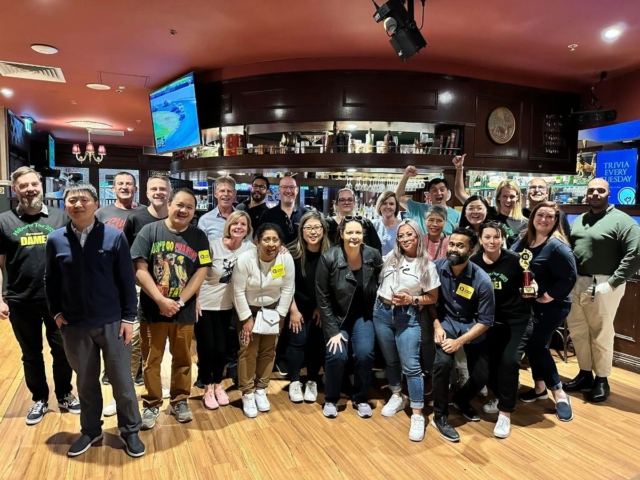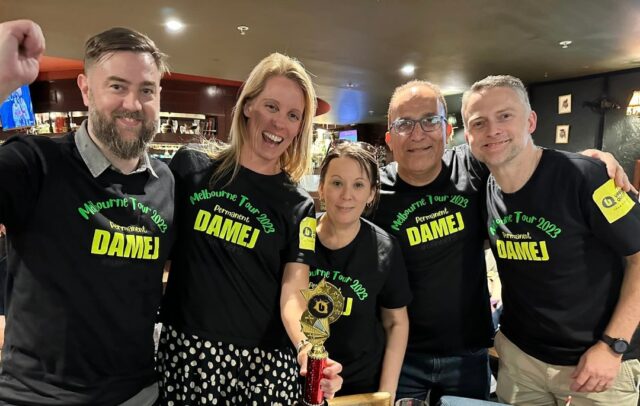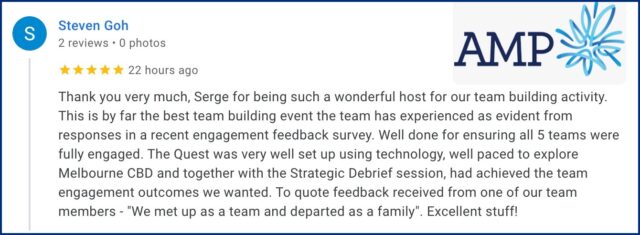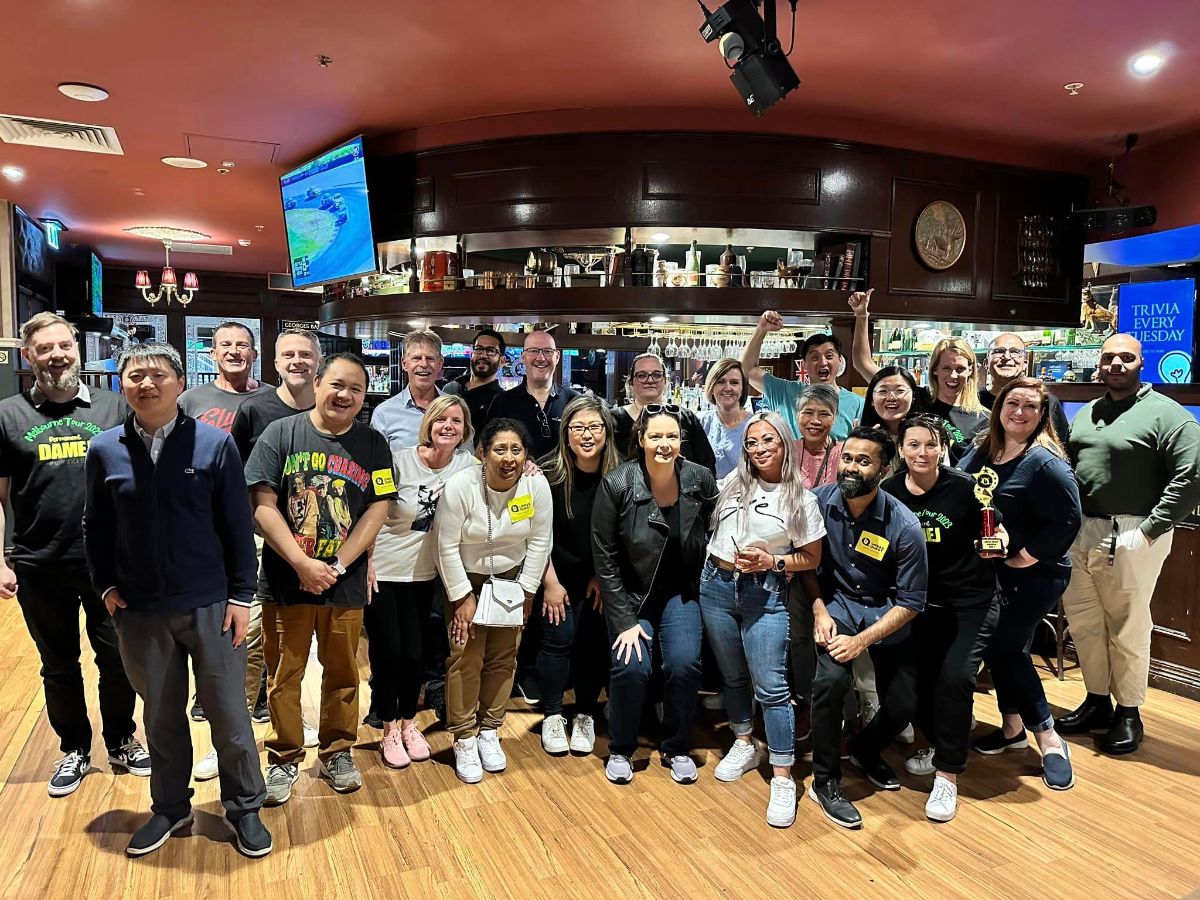The Dilemma of Transient Team Building: Bridging the Gap for Melbourne’s Workforce
The corporate team building industry in Melbourne, like many places, offers an array of activities that promise to boost teamwork, cooperation, and camaraderie among colleagues. However, let’s face it: many of these experiences are fun while they last, but quite often, teams return to the office the next day, the same as they were before. Inefficient, right?
The problem with many team building activities in Melbourne is that they lack the transformative power we all hope for. There’s often a missing link between the fun-filled activities and real-life takeaways. The challenge is to bridge the gap, ensuring that teams leave their team building experiences with valuable lessons and come to work as a more cohesive, effective unit.
The Challenge of Inefficient Team Building
For years, organisations in Melbourne have been investing in team building activities, from outdoor adventures to indoor challenges. While these activities can be enjoyable, they frequently miss the mark when it comes to leaving a lasting impact on team dynamics.
The truth is, team building activities can only have a significant impact when there are tangible takeaways. Simply having a good time doesn’t cut it. For these experiences to be worth the investment, they should leave teams with the tools and insights to improve as individuals and as a collective. The team building industry must evolve to offer experiences that genuinely transform teams.
A Solution: The Power of Strategic Debrief
At Urban Quest, we understand that team building should be more than just a day of fun. It should be a journey of growth and transformation. That’s why we’ve introduced the concept of the “Strategic Debrief.”
What is a Strategic Debrief?
Imagine this: Your team has just completed a challenging and engaging team building activity. Instead of returning to the office with just the memory of a good time, you gather for a Strategic Debrief. This is where the real magic happens.
In a Strategic Debrief, your team has the opportunity to analyse and discuss the activities you’ve just completed. It’s a time to reflect, share insights, and find solutions to real workplace challenges. It’s about taking the experiences you’ve had during the team building activity and translating them into actionable takeaways for the office.

Experiencing the Power of Debrief: A Real Example
Let’s dive into the world of Strategic Debrief and see it in action through a real-life example. Not long ago, our team had the privilege of hosting a session for the Remediation department at AMP. This particular team comprises three smaller working groups, each with unique responsibilities. Here’s where the challenge lies – not only do these teams need to communicate efficiently with each other, but the members within these groups are also geographically dispersed, working from different states.
Now you see the working process challenge where complexities are layered onto each other. However, it’s not very different to any other corporate team in the hybrid work environment, that became our new norm.
Recognising the unique challenges of this team, we structured a 30-minute discussion session based on their recent team building experience with Urban Quest. Our approach at Urban Quest team building activities focuses on problem solving, critical thinking, and all of this under the pressure of time. This provided a solid foundation for our discussion, as the problem-solving methods used during the team building activity reflect how these teams would operate in their workplace.
The Real Impact: A Case Study
Now, you might be wondering what the AMP team managed to take away after their Debrief session. Well, let us share their findings with you.
1. Trusting Each Other’s Unique Strengths
During a Strategic Debrief, team members shared their personal experiences and how they overcame challenges during the team building activity. This open dialogue encouraged the team to trust in each other’s unique strengths. They realised that each member brought something different to the table, and by trusting and leveraging these strengths, they could contribute to the project’s success.
2. Acknowledging that No One Knows Everything
In the open and reflective atmosphere of a Strategic Debrief, participants acknowledged that no one knew everything, nor should they. This concept aligns with the idea that a team exists to rely on one another’s strengths and bridge knowledge gaps. The Strategic Debrief encouraged teams to embrace their reliance on one another and recognise the collective power of the team.
3. Strategizing Before Action
One of the key lessons learned from the team building activity is the need to strategize before taking on challenges. Rushing headlong into a problem appeared to be not the best approach. Instead, teams realised the importance of pausing, analysing, working out an action plan, and only then taking action. It’s about incorporating strategic thinking into daily work.
4. Prioritizing a Positive Team Environment
Results matter, but a positive team environment matters just as much. One of the teams discovered that when they focused on fostering a harmonious atmosphere, results followed naturally. This shift in mindset is a valuable takeaway from the Strategic Debrief.
5. Assigning Roles Naturally
The final takeaway from the Strategic Debrief was about role assignment. Rather than forcing roles upon team members, the discussion in the debrief helped identify where each member’s strengths and weaknesses lay during the experience. With this awareness, team members could naturally gravitate towards roles that suit their skills, contributing to the team’s success.

Enhanced Team Performance As A Result Of An Efficient Team Building
So to sum it all up, the team at AMP left with far more than memories. They left with:
- Enhanced Trust: They now trust in each other’s unique strengths and know how to leverage them for success.
- Acknowledgment of Knowledge Gaps: They recognise that no one knows everything and are ready to rely on their team members.
- Strategic Thinking: They’ve adopted a more methodical approach, pausing to strategize before tackling challenges head-on.
- Valuing Team Environment: They now prioritize a positive team environment, understanding that results naturally follow.
- Natural Role Assignment: They’ve learned to assign roles in a natural way, playing to each other’s strengths.
But why just take our word for it? Explore the insights of the Transformation Program Manager at AMP, Steven Goh, as he shares his thoughts on the triumph of the Urban Quest team building experience, complete with the included Strategic Debrief, in his Google review:

In Conclusion: Transforming Teams
The power of a Strategic Debrief can’t be underestimated. It’s a tool that transforms team building activities into true learning experiences. It’s the key to transforming your teams into more effective, cohesive units. It’s a bridge that connects the thrill of the activity with practical takeaways that your team can carry into the workplace, making it a worthwhile investment for your organisation.
When your team leaves with actionable takeaways, you can be sure that the investment was worth it. The team building industry in Melbourne is evolving, and Urban Quest is at the forefront, offering transformative experiences that leave teams stronger, more cohesive, and better equipped to excel in the corporate world.
Contact us today to start transforming your team with Urban Quest and Strategic Debrief.
In the video: Strategic Debrief – an interactive session sparks informal conversations among participants from AMP. The focus is on fostering self-reflection about team dynamics and encouraging teams to identify their strengths and areas that need improvement.



